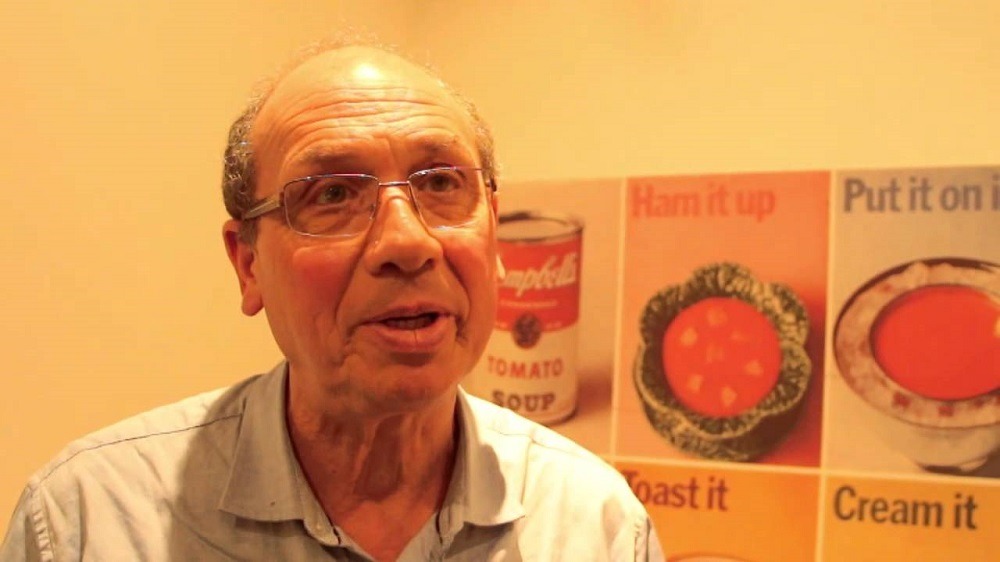The UK government has already started to invest in alternative plastic materials' projects, including Skipping Rocks Lab's Ohoo - which is made from seaweed
Fish caught up in a plastic glove (Credit: Max Pixel)
UK businesses have agreed to give financial backing to a government-led strategy to invest in new alternative forms of plastic and packaging materials.
The expected £149m ($185m) investment from the private sector will be used to find ways to cut waste from the supply-chain and create new sustainable and recyclable materials.
It adds to the £60m ($74m) public sector backing for the Industrial Strategy’s Smart Sustainable Plastic Packaging scheme announced in December 2018.
This adds to the UK’s government’s investment into research and development, which aims to boost productivity by backing firms to create jobs and increase the earning power of people throughout the country.

Business Secretary Greg Clark said: “We have all seen the enormous damage being caused by single-use plastics across the world.
“The race is on to develop new effective and practical solutions to end the scourge of single-use plastics, helping protect our planet for future generations.
“We have put a record level of research and development investment at the heart of our industrial strategy – investing to support our best minds and businesses in developing the solutions and industries of tomorrow.
“This government and business co-investment clearly demonstrates that when it comes to cutting plastics pollution there is a shared ambition.
“This is a unique opportunity for our world-leading businesses and innovators to develop the materials of the future with the potential to transform our economy, as well as our environment.”
How will fund into alternative plastic and packaging materials be invested?
The government will use the fund in a variety of ways, including research into how to cut waste in the supply chain.
It will also invest in the development of environmentally-friendly business models, as well as the creation of new sustainable recyclable materials.
The government has already backed the development of plastics made from plant products that degrade easily in an open environment through its Industrial Strategy, supporting companies such as Skipping Rocks Lab, the firm behind Ohoo.
Today, it has called for evidence on standards for bio-based and biodegradable plastics from scientists, manufacturers and the research community, seeking insight on the sustainability and wider environmental impact of biodegradable, compostable and bio-based plastics.

Professor Sir Mark Walport, chief executive of funding body UK Research and Innovation, said: “Plastic pollution is a global crisis that affects our oceans and our land.
“The new investment through the Industrial Strategy Challenge Fund will establish the UK as a leading innovator in smart and sustainable plastic packaging solutions, delivering cleaner growth across the supply chain, with a dramatic reduction in plastic waste entering the environment by 2025.”
Private sector investment will be a catalyst to tackle plastics challenge, says Sainsbury’s director
Major UK businesses have claimed the announcement is a firm commitment from the private sector to work in collaboration to create better packaging alternatives.
Sainsbury’s brand director Judith Batchelar believes the backing will be a springboard for businesses looking to address the plastics problem, allowing them to invest and innovate together.
She said: “The plastics challenge is one of the greatest issues for our planet, so today’s announcement is fantastic news for retailers like Sainsbury’s that are already committed to reducing single-use plastics.
“But this is an issue that affect all retailers and manufacturers so it’s only by working together that we can make genuine progress and significantly reduce the nation’s reliance on plastic.

“This fund will act as a catalyst for this ‘coalition of the willing’ to address the research and innovation opportunities together and Sainsbury’s is proud to play our part.”
Unilever’s chief research and development officer Richard Slater added: “Unilever is actively working to reduce the impact of its plastic packaging.
“Many of the key challenges we face can only be overcome by working in partnership and across the whole system.
“It’s great to see industry and government coming together to find innovative solutions – as part of the ‘Smart Sustainable Plastic Packaging challenge’.”
Why UK government must invest in plastic composting infrastructure

The Foodservice Packaging Association‘s executive director Martin Kersh has welcomed the government investment in waste and the financial backing of businesses for research into creating new recyclable materials.
He said: “The use of plant-based plastics that are capable of being recycled through conventional means – as an addition to petrochemical-derived plastics – is a very forward-thinking strategy.
“It’s to be applauded, as is the work of Skipping Rocks, which has received funding from business and is using a material that takes up very little land space.”
The UK government’s Department for Business, Energy and Industrial Strategy (BEIS) refers to using plants instead of oils to make plastic, saying these “will help reduce their carbon impact”.
But Mr Kersh said there is some debate as to whether there is “compelling evidence” that the cultivation of crops and their conversion to polymers significantly reduces the carbon impact, in comparison to petrochemical-derived plastics.
He added: “Greg Clark makes the point that these plant-derived plastics are somehow not plastics, when of course they are.
“Such statements create confusion at a time when we all need to be clear that the use of plant-derived plastic does not make packaging plastic-free.”
Mr Kersh has also called upon BEIS to back investment into the composting infrastructure so the UK can get the full benefits of compostable packaging.
“For many years, packaging has been made with plant-derived plastics, with the intention of them being composted,” he added.
“Even with their current growth of sales, we are making very little progress on the development for a UK-wide infrastructure to ensure the majority of compostable packaging is composted.
“While encouraging more plant-based polymers, should Mr Clark set aside funding to identify composting solutions?
“He need not look any further than the parliamentary estate to witness first-hand the paucity of UK facilities.
“The extended producer responsibility proposal presents the opportunity for UK-wide composting collection and infrastructure.
“BEIS must back this up with funding so that not only is the UK world-beating in the creation of alternative materials, it is also world-beating in what we do with them afterwards.”
